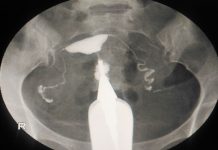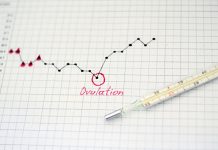In this Article
A few decades ago, having a baby at 40 was considered either impossible or risky. Not anymore. The risks might still be there, yet medical technology has advanced and with so many fertility treatments available, it is now easier to get pregnant at 40. As long as one maintains their health and consults a doctor, getting pregnant at 40 is very much on the cards!
Pregnancy in your 40s
A woman’s biological systems, especially the reproductive system, function best between the 20’s to 30. But during their 40s, the changes that take place within the body have an effect on the reproductive capability of the individual.
At 40-44 years: The quality and quantity of eggs are at its best in younger years. With an increase in age, both decrease. In the early 40s, one will find that it becomes difficult to get pregnant at 40 naturally. Also, at this age, the eggs produced may have chromosomal abnormalities. However, assisted reproductive mechanisms can be sought to get pregnant. If eggs are found to be abnormal, then donor eggs can be availed and IVF treatment can be done. The other problem is with the uterus. The lining gets thicker leading to the lower blood supply to the uterus, which can make an egg implantation difficult.

Menopause also occurs at this age which will shorten the menstrual cycle. This means ovulation can occur even on day 9 as opposed to day 15 as on a normal cycle. You can get an ovulation kit to determine the exact days of ovulation as having sex on these days can increase the chances of pregnancy.
At 45 years and beyond: The odds of getting pregnant naturally decreases further after 45. Yet, one need not lose heart as fertility treatments such as IVF can be done. Since eggs are checked and only healthier eggs are implanted, there is a better chance of healthy embryos. Donor eggs can also be tried if no eggs are found to be healthy. This can be the best way to have a healthy pregnancy as there is a high success rate for pregnancies over 40 with this method.
Benefits of Having a Baby in 40s
Of course, there are several benefits of having a baby in your 40s. You are most likely to be financially secure and emotionally ready at this age. You are probably in the best phase of your career and practically ready to relax. You also tend to be more stress-free at this age, as every other factor has been in your favour.
This is also the age when your relationship is at its peak as you and your partner have been together for a while. Thus, you are in a comfortable place in your relationship. You are sure to have a baby with the person you love and this will also mean a stronger family foundation for your child.
Also, you are at an age where you tend to be wiser, more mature and sensible. So, as an older mother, you may also be able to take practical as well as wiser parenting choices. You can be the best mother there is at this age.

It is found that older moms are more confident and ready to breastfeed which gels well for the health of both the mother and the child. At 40, both parents tend to be in a financially well-off position which helps in better parenting as you can now afford to provide the best for your child.
You are also more at ease at this age, as you have seen the world by now. So, you are now eager to concentrate on your personal life which will allow you quality time with your baby. Thus, you can raise your child better.
Another advantage is that at 40, there is a better chance of having more than one baby. If you are trying to conceive naturally, then the hormones will have to work overtime which may lead to more than one egg being implanted. Thus, the chance of having twins is more at this age. Same, if you are opting for assisted pregnancy such as donor eggs, IVF, etc., there is a higher chance of more than one baby.
Drawbacks of Getting Pregnant After 40
The main disadvantage of getting pregnant after 40 is that there is a higher risk of the baby being born with abnormalities. This age is regarded as a high-risk pregnancy age. Thankfully, today there are advanced medical technologies which can find out birth defects earlier. Pregnant women in their 40s can undergo screening tests to find if there are any abnormalities in the embryo. It is seen that babies born in older mothers are at a higher risk to conditions such as Down’s Syndrome. Chromosomal abnormalities also tend to occur in pregnancies over 40 years.
Another problem associated with older age pregnancies is a miscarriage. The risk of miscarriage is higher in pregnancies over 40 and after 45, the chances increase even more.
Even if one gets pregnant and all the tests are favourable, extra care is required during the whole period of pregnancy and even after delivery. In some cases, doctors also advise complete bed rest.
Older pregnant women are more likely to get placenta-related problems, high blood pressure, gestational diabetes, pre-eclampsia and more. They may also have delivery-related problems and are most likely to have a caesarean section and not a normal delivery. Babies may be born much earlier which means they would be under-weight. The baby’s position also can be difficult during delivery.
Yes, there are numerous complications for pregnant women over 40. The good news is that there are many women who have had a normal and healthy pregnancy at this age. Remember, whatever problems you face,there is modern medicine to help you out.
Chances of Getting Pregnant After 40
There are many studies that have proved that many women over 40, grapple with fertility issues. The chances of getting pregnant post 40 do decrease and there is probably 5 to 20 percent chance for women in their 40s and later.
A woman in her 30s will have about 75 percent chances of getting pregnant whereas, the chances of conceiving at 40 are drastically reduced. This is because the number of eggs that are produced decreases considerably as age advances. During a person’s younger years, the number of eggs produced ranges between 300,000-400,000 but the number of eggs produced in women after 37 years is just about 25,000. The quality of the eggs also deteriorates as their age increase.
The prevalence of miscarriage also increases in pregnancies over 40. In the early 40s, the chance of miscarriage is about 34 percent whereas, by the age of 45, the chances rise to about 53. There are also other complications such as genetic abnormalities, chromosomal problems and so on.
Yet, with so many Assisted Reproductive Technologies (ARTs) now available, chances of getting pregnant at 40 today is considerably higher than any time. Thus, it is a great time to try to get pregnant at 40. Even if eggs are not viable, then one can go for donor eggs and with the help of IVF, women over 40 can easily get pregnant now and deliver healthy babies. With modern medicine, having a baby at 45 years old is possible now.
What Are the Chances of Getting Pregnant Naturally in 40s?
The chances of getting pregnant at 40s depend on various factors such as the health of the mother, the lifestyle of the parents and so on. In early 40s, there is a 20 percent chance of pregnancy while post 45, the percentage decreases and now it is about lower than 5 percent.
At the same time, you can try for pregnancy after 40 years old naturally by bringing about certain changes in your lifestyle and eating habits. In fact, there are cases in which healthy lifestyle changes have helped women get pregnant.
Maintain normal BMI: The right Body Mass Index (BMI) is necessary for the body to function normally. That is, you should have the ideal weight as per your height. This means you should try to maintain normal body weight. One of the leading causes of infertility in women is because of obesity. Hormones function normally in women with weight in the ideal range. At the same time, you should try to lose weight naturally if you are overweight and trying to conceive. Never starve but eat healthily. Incorrect ways of dieting can lead to nutrition deficiency which can prevent endocrine hormones from functioning normally.
Weight loss supplements are also not advisable as they interfere with hormonal functioning.
Healthy eating: There is something called as ‘fertility diet’ which refers to the right nutrition required for a normal pregnancy at age 40. The body requires optimal nutrition when pregnant as the food eaten by mother contributes to the nutrients reaching the uterus. There should be enough calories, proteins, vitamins, minerals and other constituents of food to ensure a normal and healthy pregnancy. Have more vegetables and fruits. Avoid caffeinated drinks and alcohol. Resist smoking. Have more soups in place of any other drinks, hot or cold. Leafy and green vegetables are ideal, especially broccoli, spinach, dill, cauliflower, kale, beans and more.
Folic acid is of utmost importance for pregnancy. Consume more fish as they can provide folic acid. Avoid red meat but increase intake of lean meat. Eggs are also super beneficial for proteins.
You should also have more salad and smoothies to ensure that your body gets all amino acids, antioxidants and minerals for a healthy pregnancy.
Tips: Try an ovulation kit to predict the exact day of your ovulation. The body temperature tends to be higher during ovulation. Check cervical secretion as this also indicates the embryo condition. Have intercourse every alternate day. It is also said that undertaking positions to ensure deeper penetration also helps in faster pregnancy.
Supplements: Women over 40 can also take the help of several supplements to boost chances of getting pregnant. Vitamin E supplements, folate supplements, calcium and other such supplements can provide the necessary nutrition and thus facilitate the working of hormones.
What Are Chances of Getting Pregnant With Fertility Treatment?
Today, there is a lot of help available to women over 40 to get pregnant, so there is an increased chance of getting pregnant with fertility treatments as compared to earlier days
Just because there is a problem doesn’t mean there isn’t a solution. For example, if in a woman of 40 or beyond, the eggs are found to be of low quality or if there is an insufficient number of eggs, then she can go for donor eggs and get pregnant.
There is the IVF or In Vitro Fertilisation in which the embryo is created outside the womb and then implanted. This procedure not only has a higher chance of pregnancy but it can also ensure birth of a healthy baby.
ICSI or Intracytoplasmic Sperm Injection is also widely used as a sure shot for pregnancy at 40s.
Consult a doctor and undergo a thorough medical check-up to find what is affecting your chances of pregnancy. Accordingly, the doctor will suggest remedies or procedures. Lead a healthy lifestyle and take all the medicines as per doctor’s advice. There is a higher chance of women over 40s to get pregnant and have healthy babies with fertility treatments.
What You Can Do to Get Pregnant After 40?
If you are over 40 and trying to get pregnant, then the first thing that you should do is to switch to a healthier lifestyle. Prepare yourself. Find out what your ideal weight must be and work to achieve it. Work out and eat well to maintain your ideal and normal weight. If you are obese, lose weight but healthily. Do not starve or go on a crash diet because, at this stage, your body requires more nutrition.

Consult a doctor or a fertility specialist and discuss all the ways on how to increase fertility after 40. There can be natural ways or you can opt for fertility treatments, or undergo assisted reproductive practices. The doctors will check your ovulation cycle, the ovaries, the health of the uterus, the quality of the eggs and your general health and will guide you accordingly.
Conclusion
It is a fact that the chances of getting pregnant at 40 or after 40s do decrease but at the same time, it is heartening to note that there are many women over 40 today getting pregnant and having healthy babies. Science is there to help provided you are ready for it. So, take each day as it comes and follow your doctor’s advice and you will soon hear the ‘good news’.









